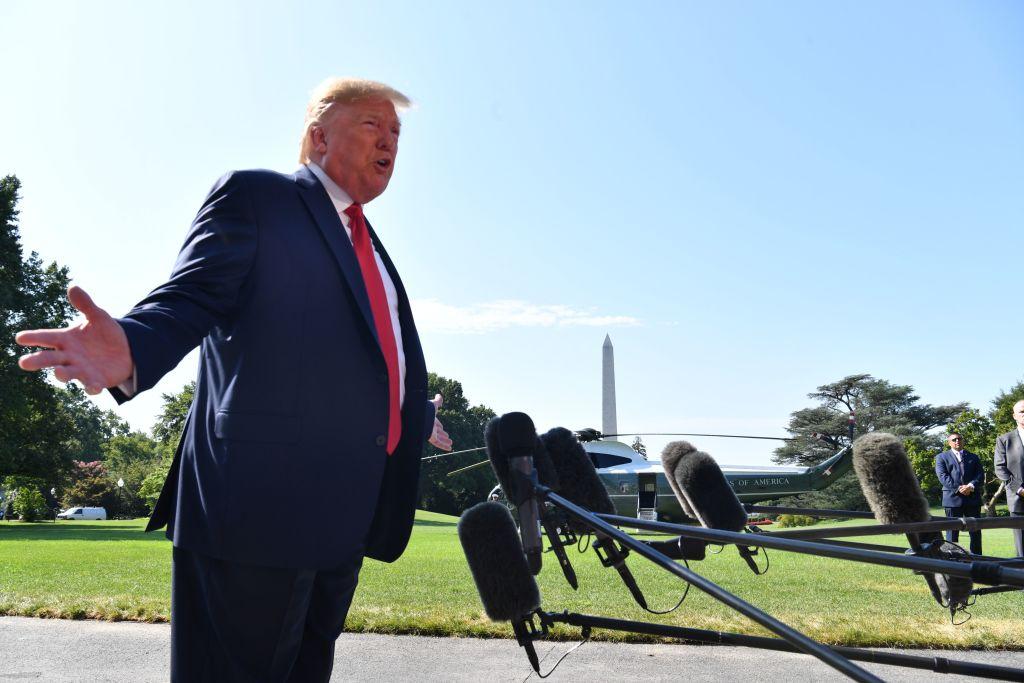WASHINGTON—President Donald Trump said Aug. 9 he isn’t ready to strike a trade deal with Beijing, criticizing the Chinese regime for manipulating its currency and reneging on its pledges.
“They would like to make a deal. I’m not ready to make a deal,” Trump told reporters at the White House before his departure for fundraising events in New York.





